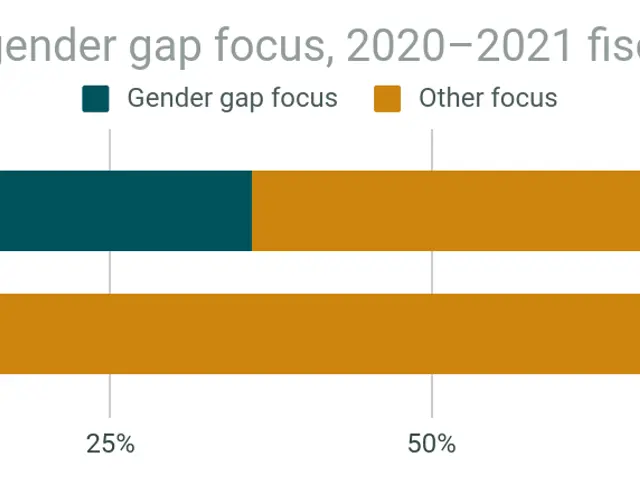Strategies to Minimize Health Prejudice and the Importance of Such Actions
Navigating health issues can already be challenging, but when those issues carry a hefty dose of social stigma, it becomes even harder.
Stigma arises when people assume someone intentionally brought upon their own illness due to poor choices or immoral behavior. The truth is, no one asks for a disease, so blaming the victim just doesn't fly.
Health Conditions Shrouded in Stigma
The stigma surrounding health issues can evolve with time, influenced by shifting cultures, opinions, politics, and populations. Here are some examples of health conditions that continue to face prejudice:
- HIV/AIDS: When HIV first emerged in the '80s, assumptions were made about those infected, branding them as drug users, sexually promiscuous, or gay. Although stigma around HIV has lessened over the decades, it hasn't completely disappeared. Similar discrimination has affected people affected by the recent mpox outbreak and other sexually transmitted infections (STIs).
- Chronic Lyme Disease and Chronic Fatigue Syndrome: These often misunderstood conditions have faced significant stigma.
- Mental Health Conditions: Psychotic disorders like schizophrenia and common disorders like depression and anxiety can be seen as weaknesses or personal failures.This stigma can be detrimental, leading to delayed treatment and social isolation.
- Conditions associated with drug use, such as Hepatitis C: People may feel ashamed of having the infection due to the stigma surrounding drug use, which may not align with their current reality.
- Even discussing weight-related topics or personal medical choices like abortion can come with its own brand of social judgment.
The Roots of Health Stigma
Stigma is a judgmental assumption that someone has brought their ailment upon themselves through immoral actions. However, it's not static; it shifts as opinions and attitudes evolve.
According to Dr. Maria Corcorran, a specialist treating patients affected by HIV, hepatitis C, and other stigmatized conditions, change can happen as things become more mainstream in society. For instance, while HIV is less stigmatized than it was in the past, it's still not something people openly discuss, despite treatments that almost make the infection undetectable.
Politics, law enforcement actions, health policies, social norms, and media representation can all play a role in shaping stigma and its evolution over time.
Reducing Health Stigma: A Team Effort
- Education and Awareness: Medical research can help reduce stigma by discovering effective treatments and cures. Understanding that conditions like HIV and Hepatitis C are curable can go a long way in challenging stigma.
- Open Dialogue: Talking openly about stigmatized conditions can help reduce stigma and empower those affected. This could mean discussing diagnoses online, among friends, or simply educating yourself on the facts.
- Empathy and Support: Be understanding and supportive when someone confides in you about their health condition. Showing support, personally and publicly, can make a difference in reducing stigma.
- Advocacy and Allyship: It's not fair for those affected by stigmatized conditions to bear the burden of changing society's perceptions. Advocacy and allyship from the community are essential to reducing stigma and creating a more compassionate world.
- Neurological disorders, such as Parkinson's disease and multiple sclerosis, can also be subject to stigma, being associated with weakness or incompetence.
- Cancer, often surrounded by fear and misunderstanding, can sometimes be met with unwarranted blame or judgment, leading to additional emotional burden for patients.
- Respiratory conditions like asthma and COPD can be misinterpreted as a sign of weakness or poor lifestyle choices, despite being complex health issues.
- Digestive health problems, such as inflammatory bowel disease or celiac disease, can be overlooked or stigmatized due to a lack of public understanding about their causes and symptoms.
- Eye health issues, like vision loss or cataracts, can sometimes incur prejudice, being perceived as a sign of aging or a personal failure.
- Hearing loss or deafness can be a source of embarrassment for some people because of the misconception that it is a sign of old age or undesirable lifestyle choices.
- Conditions related to sexual health, such as erectile dysfunction or sexually transmitted infections, can carry a heavy dose of stigma, leading to people feeling shame or reluctant to seek help.
- Autoimmune disorders like Lupus, Multiple Sclerosis, and Rheumatoid Arthritis can be shy of social acceptance due to a lack of understanding about the nature of these conditions.
- CBD, a compound found in cannabis, has been widely debated due to its association with marijuana, leading to misunderstandings about its medical benefits and uses.
- Sports, including professional sports and fitness activities, have even faces stigma, with body image issues, performance-enhancing drugs, and gambling in sports (such as sports betting) contributing to negative stereotypes and prejudices. Ultimately, promoting education and self-development, including career development through skills training, personal growth, and open dialogue about health conditions can help create a more empathetic and accommodating society.







